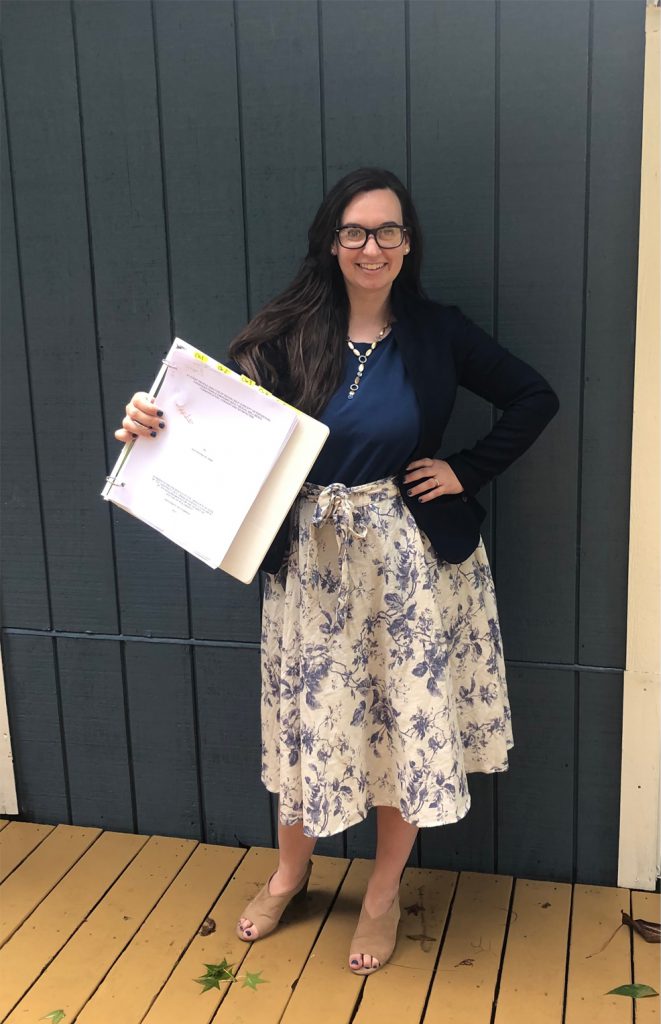In 2017, the department of family, youth and community sciences at the University of Florida Institute of Food and Agricultural Sciences launched a new doctoral program. Four years later, the department awarded UF’s first doctorate in youth development and family sciences to Katherine Sims—Dr. Katherine Sims, that is.
When Sims, a Middleburg native, entered the doctoral program a few years ago, she knew there would be many challenges, learning experiences and successes. She

had previously earned her undergraduate degree in anthropology and her master’s degree in family, youth and community sciences, both from the University of Florida.
Sims enjoyed learning about culture, language and people. The collision of these interests sparked her interest in the FYCS department. Sims said the department focused on specific aspects of youth or community development, which really drew her in. “I felt like I could make an impact,” she said.
In summer 2017, Sims earned her master’s degree and learned the new youth development and family sciences doctoral program would launch in the fall. She knew she could be an integral part in developing the program as one of the first students to enroll.
“As the first cohort, we were all kind of being the trailblazers together,” Sims said. “It was a learning experience for everybody, but it was great to be there, as the foundation was being laid.”
The doctoral program was created to prepare students for tenure-track faculty positions or research careers and leadership positions in government, nonprofit or private sectors. By advancing her educational path through the new program, Sims was able to expand on the research and courses she had taken as a master’s student. Her favorite part of the program was the flexibility and support she received from FYCS faculty.
“A huge benefit of the program is how dedicated the faculty is to ensuring our success,” Sims said.
The youth development and family sciences curriculum allowed Sims to take courses within the FYCS department as well as in statistics, health education and women’s studies, which expanded her perspective as a researcher and future educator and allowed her to earn a certificate in women’s studies.
For her dissertation research, Sims focused on female sexual self-concept in emerging adults. She approached sexual self-concept in a new way through her study, which concentrated on female college students’ sexual self-concept related to their sexual communication, sexual consent and sexual pleasure. Studies in the past had only focused on each of those elements separately.
Sims’ doctoral program allowed her to teach some undergraduate courses, which helped her determine her future career plans. As an instructor during the pandemic, Sims also developed new skills and widened her perspective on teaching and learning.
“The pandemic showed us that we have to be able to adapt,” Sims said. “And that the way that we have done things in the past does not have to be the way we do things in the future.”
Sims plans on applying for teaching positions in Florida in the coming months. Her dream position would be to teach women’s studies courses.
As the first doctoral graduate in youth development and family sciences at UF, Sims wanted to thank everyone involved in her program. “It was cool to feel like we were making a difference in this program and that we sparked changes for student experiences in the future,” she said.
The youth development and family sciences doctoral program is one of 25 graduate programs offered through the UF/IFAS College of Agricultural and Life Sciences, equipping students with the knowledge and skills needed to advance the agriculture, natural resources, environment and life sciences industries.
 0
0
